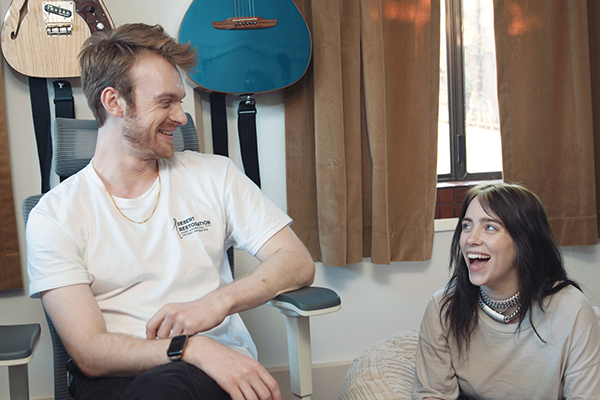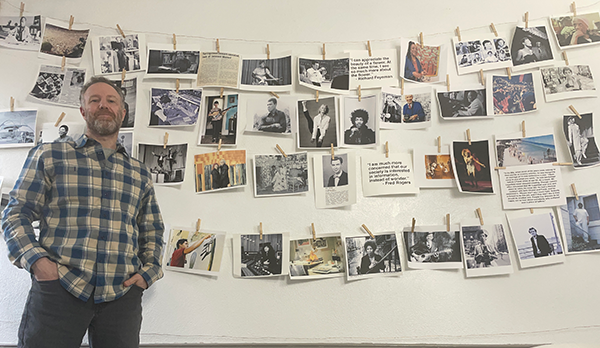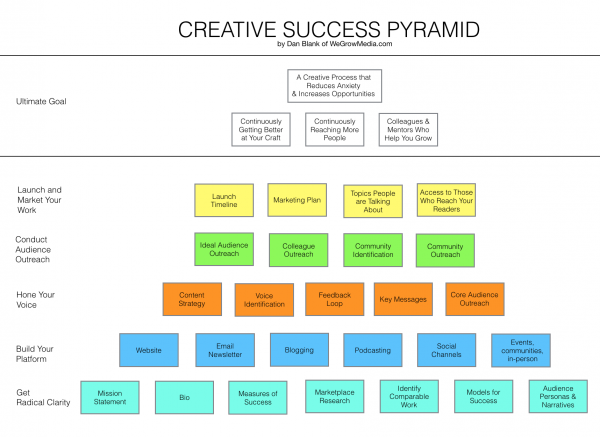How many times have you heard someone pitch you on a “can’t fail method to systematize your book sales.” Or your newsletter subscribers, social media followers, or something else. The components are always the same:
- “I’ve done it again and again.”
- “It’s a system that you follow step by step.”
- “The steps are surprisingly easy.”
- “Once you do it, you can set it and forget it. Success happens and keeps happening.”
- “Let me tell you a story of Becky who did this and how it changed her life…”
You are sold things like this again and again, and what I have found is that it leaves writers feeling discouraged. They try it but it doesn’t work for them. They hear these pitches again and again and begin to feel that it is they — the author — that is broken. Because it’s working for all these other people, “why not me?” The comparisonitis builds up making them feel bad about themselves.
So today I want to talk about the truth, and also offer you a clear path to success on your terms. We will cover this in two parts:
- No one knows what will work.
- Embark on a discovery process to identify what will work for you.
Okay, let’s dig in…
No One Knows What Will Work
There, I said it. No one knows which book will succeed and which won’t. No one can give you a step-by-step plan on how to get results for so many things in life. Even though this sounds jaded, I am a very positive person, I believe the glass is half-full, and I spend most of my time helping writers make progress.
So let’s talk about why I say this, because understanding this actually helps you get to the path that will work for you.
I want to share an example from another creative field. This is Billie Eilish and her brother Finneas:

They make music together. How successful have they been? A few highlights:
- Her album debuted at number #1 on the Billboard charts.
- She has eight gold and four platinum singles in the US.
- Their music was streamed billions and billions of times on Spotify and Apple music in 2019.
- Billie has 48.9 million followers on Instagram.
Oh, and it should be mentioned that Billie is 18 and Finneas is 22.
Recently, I began binge-watching interviews with them. Turns out, they were homeschooled, she still lives in her parents’ tiny house, and all of their biggest hits were recorded in the two bedrooms of the house. Growing up, their parents slept in the dining room so Billie and Finneas could have their own rooms.
With all of their success, listen to how Finneas describes knowing what works:
Interviewer: “Do you think there is one clear formula to a hit record?”
Finneas: “No. Absolutely not.”
Interviewer: “Do you feel you have an idea of what it takes?”
Finneas: “No. Less and and less now that we have had more and more success, because it just teaches me each time that I don’t know.”
Or how he described the path to the first huge hit that he and Billie had:
Question: “First song you ever wrote?”
Finneas: “Ocean Eyes. (Laughs) That’s not true. I wrote like 200-300 songs that no one will ever get to hear before I wrote that song. I thought they were all really good at the time, and subsequently think they were all really bad. That’s the deal. I loved writing them.”
In this interview they dissected the process for creating their biggest hit song, “Bad Guy.” She started working on it in her bedroom. Then it moved over to his as they got some parts to it worked out. As they tell it from here:
Finneas: “We had that. Then it sat around for like a year.”
Billie: “I’m shocked and happy people like it the way it is, because the thing we were most worried about was the chorus, and it having no hook.”
What she means is that this is a very unusual song. In interview after interview, each of them talked about how worried they were that no one would even like this song. Yet it became their biggest hit.
What Billie and Finneas share is the perspective I hear again and again from successful writers and artists. You see, all I do all day is study the creative process and creative success:
- I am in the trenches with writers who are clients, in my mastermind, or my other programs.
- I interview successful writers and artists in my weekly podcast.
- Most of my friends and colleagues are writers or artists.
- I do an incredible amount of research into this via books, podcasts, documentaries, interviews, etc.
This is the wall of my studio filled with photos of creators who inspire me, I stare at this all day:

The path to success for each of these people was unique. As will your path be.
Each talent is unique.
Each success is unique.
Craft matters.
But so does luck.
So let’s discuss the path to success…
Embark on the Discovery Process
Success as a writers or artist is a process of discovery. What this means is that you are diligently doing strategic and smart work to move ahead, but constantly looking for signals for what direction to move in next, what works, and what doesn’t.
I want to share the key things I believe you need in order to embark on your own discovery process to find success. When I work with a writer to help them create an author platform, develop their audience, and launch their book, we embark on a discovery process with these elements:
Have a Clarity of Intention
Too many people fail to make progress because their goals are vague. They don’t have clarity on what they create, why, or how they hope it effects the world. Without clarity, I find many writers bounce back and forth between competing intentions:
“I just want to be a published author.”
“I want to grow my newsletter list.”
“I want to be a bestseller.”
“I want 10,000 followers.”
“I want to find my tribe.”
None of these milestones are bad. But they are just that, milestones in a much larger process as a writer. Some people I speak to have clear intentions. For those who don’t that is often the first step… to whittle down your intention to something specific and meaningful. Sometimes writers simply don’t know. For them, we can ask a simple question, “What are you curious about?” Start there.
Have a Methodology
While I said earlier that “no one knows what will work,” that doesn’t mean that one can’t follow a methodology to find out. For the work I do, one of those methodologies is what I call The Creative Success Pyramid. This is it (click the image to download a full-sized PDF):
It’s comprised of five basic parts, you start at the bottom and work your way to the top:
- Get radical clarity on what you create and why.
- Build your platform.
- Hone your voice.
- Conduct audience research.
- Launch and market your book.
All of these are in service of the ultimate goals: to continually create, to improve at your craft, to ensure your writing reaches more people, and to connect with others in fulfilling and meaningful ways. Within it are 30 smaller boxes. Here is a 15+ minute video of me taking you through it:
Where a methodology differs from a step-by-step template is that your path is always custom. Working through it is a process of discovery.
Have a Guide or Collaborators.
Too many people fail to success with their creative vision because they go it alone. They struggle for years by themselves. Yet all the stories I hear of success are filled with collaborators.
Sometimes these are formal guides, mentors, or coaches. Other times, they are collaborators such as other writers who help keep you accountable.
I suggest that the collaborators you work with be active, not passive. Joining a collective or being part of a “writing community” can feel active, but sometimes be passive. You can lurk in the shadows. You can follow along with their program.
This is different than having a guide or collaborator who listens, suggests, pushes, holds you accountable. Where they feel if you don’t make progress, that they are letting you down.
This is the work I do each day, and I think that is why every service I offer includes direct feedback from me. From my free programs to the highest levels of consulting, it’s not just that it gives me joy, it’s that if you aren’t getting personalized feedback, then you are always at risk of being adrift. Collaborating is critical to creative success.
Turn Discoveries Into Action, Not Endless Research
I call this a discovery process because the goal is to learn new things along the way. For instance:
- Learn the types of books you really want to write.
- Identify exactly who your ideal reader is.
- Where they show up.
- The best way to reach them.
- How you can share your work in a manner that feels authentic to who you are.
- Develop a process for it all that fits into your already busy life.
For many of these things, you won’t know the answer until you begin with a clear intention, follow a methodology, have a collaborator to help you along the way, and keep pausing to take into account what you are learning.
Persistence is a key factor here, but so are check-ins and analysis. To not just assume “Oh, I have a plan, I know what works.” But to regularly analyze and adjust your path.
Forgive Yourself
This is a human process. It can be emotional. So much of what it means to create is to discover who you are, what you are capable of creating, how others can know you, and how you can effect the lives of others.
Too many writers worry that they missed the boat, it’s too late for them. Or they feel a deep sense of impostor’s syndrome. Or they feel filled with comparisonitis as they observe the success of others.
All of this is normal. The key is to feel it, but not let it stop you. To not berate yourself for it. To forgive yourself and move on.
No one knows what will work. But the discovery what will work for you is a process I highly encourage you to embark on.
Thanks!
-Dan

